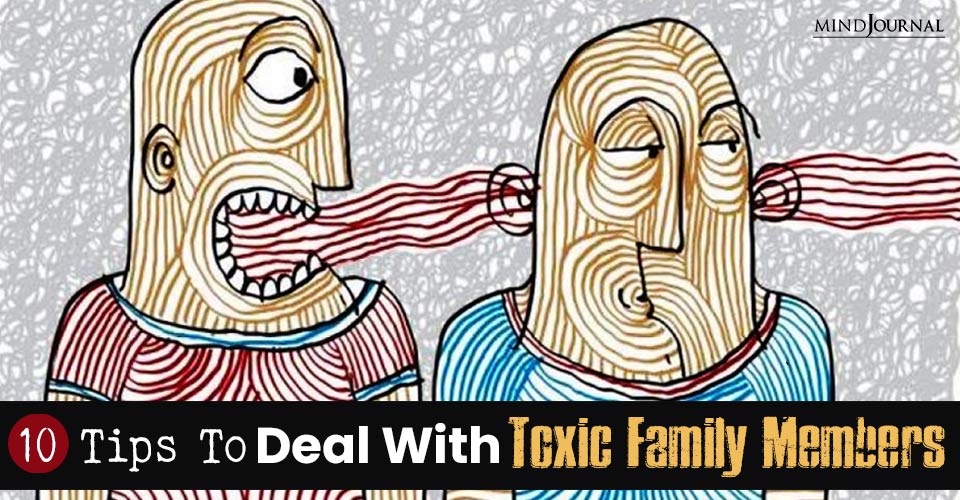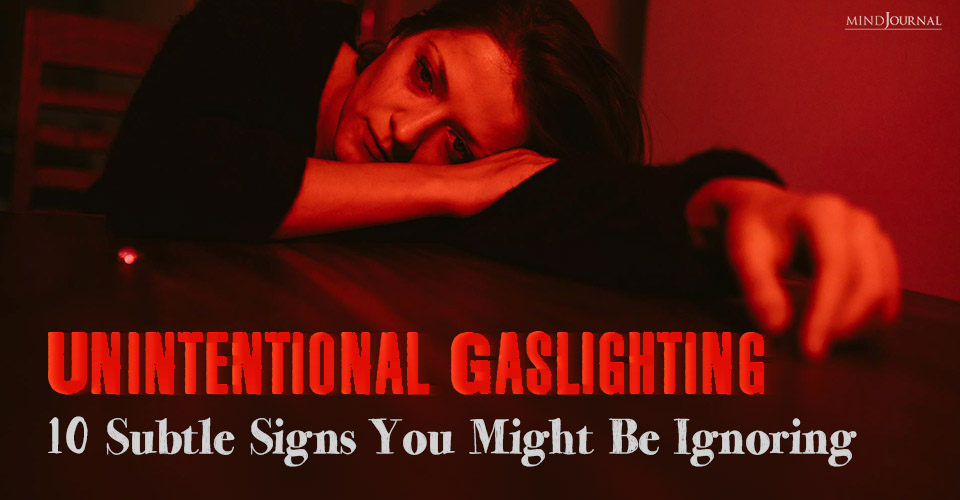Do you feel that you have a few toxic family members in your life? Are you sick and tired of dealing with these hurtful toxic family members, day in and day out?
The summer season can be a joyous time for family reunions and treasured memories of gatherings by the beach, fireworks, camping adventures, etc. For some, unfortunately, this scenario is not the case.
In families where an individual has narcissistic tendencies (or exhibits behaviors of full-blown NPD or malignant narcissism), such reunions transform into a nightmare.
Much literature has been written on the subject (see below for resources).
This article is merely an attempt to remind survivors of narcissistic abuse in family systems that there is hope to heal and that there are things you can do to protect yourself from further exposure to the force field of toxic emotional abuse by a narcissist (or other psychological abusers) in your family.
Related: Handling Toxic Family Members: Why It’s Okay To Cut Toxic Family Members Out of Your Life
10 Tips For Dealing With Toxic Family Members
1) It is not your job to diagnose your family member or determine “where” on the spectrum of narcissism your family member lies.
What you need to focus on is YOU. I cannot emphasize enough the importance of finding a skilled, strengths-focused clinician to assist with healing.
2) If the toxic individual (whether family member/friend/boss/lover/ex-lover/colleague) will be present at the family gathering, you are under no obligation to attend.
It is okay to bow out of any commitment where you feel you will be exposed to further emotional abuse.
Remember those psychological abusers like to send FOG (Fear/Obligation/Guilt) — if you are feeling immersed in the FOG haze, likely a manipulative tactic has been deployed to cause you cognitive dissonance and emotional pain.
Again, protect yourself and place your emotional well-being as number one. That action is not selfish — it is an act of self-care.

3) You can go No Contact with toxic family members, just like you would with a toxic ex.
It may feel guilt-inducing, and other family members may not understand why you have chosen to proceed with No Contact. However, remind yourself that you have every right to protect yourself from psychological harm.
The toxic family member may have done a very skilled acting job of convincing others that you are the crazy one (projection/blame-shifting) or that they are just perfect (false mask) and why would you treat them so unfairly (playing the victim)?
Stick to your fortitude and know you are setting a healthy boundary by protecting your emotional and physical health from further abuse by a toxic person. You don’t need to justify or explain it to anyone.
Related: Ways to Break Free From Toxic Family Members
4) Such as an abusive ex, if a toxic family member is harassing, stalking, or generating unwanted contact, you have every right to pursue legal action.
Consult with an attorney or Legal Aid regarding filing a restraining order and other protections (like a Cease and Desist Order).
The added layer of legal protection is an additional barrier of accountability and potentially containment of an abuser. Narcissistic people do not want to be exposed for their transgressions.
5) Seek psychological counseling to receive support for separating and extricating from toxic family systems.
There are licensed therapists who specialize in helping to empower their clients from a strengths-focused (versus victim-shaming/blaming) perspective.
Interview potential mental health professionals who are trauma-informed and know something about narcissistic abuse, to be sure you feel empowered, not shamed or blamed.
Good psychotherapy can be invaluable in healing from any residual trauma, depression, or anxiety that has stemmed from a family system perpetuating narcissistic (or other forms of) abuse.
6) If your tribe (by blood) has some toxic members, you can create your own tribe of unconditionally supportive, authentic, and safe members.
These individuals don’t have to be related to you by blood.
They can be friends, colleagues, or neighbors. Look for authenticity, integrity, reciprocity, compassion, empathy, honesty, accountability, and compromise as important features in healthy relationships.
Related: How To Handle Toxic Family Members: 11 Ways To Cope With A Toxic And Estranged Family Relationship
7) If a toxic person wants to get better, you can’t do the work for them.
They have to figure out their own pathway of healing and connect with the motivation to do so, and usually, that involves a ton of therapy over a long period of time.
Just because someone begs and pleads for you to stay in the relationship (whether familial or romantic), doesn’t mean you are obligated to do so.
If a person is capable of change, you are going to see evidence of sustained, continuous behavioral change over a lengthy period of time, with evidence of accountability and empathy, and remorse for harm caused. For individuals who are further on the spectrum of narcissism, change is very limited and so is insight.
A malignant narcissist/psychopath will not change…they are sadly welded to their ways and hardwired to be who they are. Someone with “traits” of narcissism may have some limited ability to shift and change if they can harness some insight and empathy.

8) Read up on narcissistic abuse and family systems.
To understand your situation and gain some detachment and distance from the emotional pain. (see below for resources)
9) Self-care.
You’ve heard the word, do the action…good sleep, good nutrition, exercise, strong social support, Yoga, meditation, stress reduction exercise, omega-3 fish oil, nature, journaling. Boom.
Related: What Is A Dysfunctional Family? Identifying Signs and Types Of Toxic Families
10) Have hope that you will move through the pain.
Whether or not your family member is capable of repairing the hurt, you will move on to have healthy connections with healthy members of your tribe or those who you have vetted to become a part of your newly founded tribe.
We are social creatures as human beings; humans need and deserve to be surrounded and supported by people who are trustworthy and respectful. Bottom line.
Want to know more about how to deal with toxic family members? Check this video out below!
Resources:
McBride, Karyl (2009) Will I Ever Be Good Enough?, Atria Publishing. (references daughters of narcissistic mothers -- however, substitute appropriate gender pronoun -- the book does a good job of explaining narcissistic family systems)
narcissisticbehavior.net -- Christine Louis de Canonville's website on narcissistic abuse recovery
selfcarehaven.org — Shahida Arabi’s website on narcissistic abuse recovery
blogtalkradio.com/mentalhealthnews — Kristin Walker’s podcast programs interviewing experts in the narcissistic abuse recovery field.
Written By Andrea Schneider, MSW, LCSW Originally Appeared On Andrea Schneider LCSW












Leave a Reply